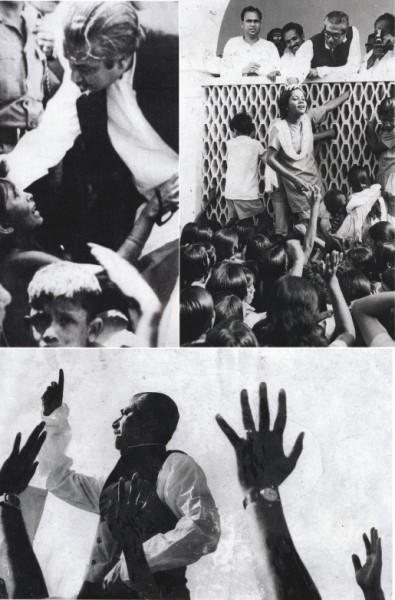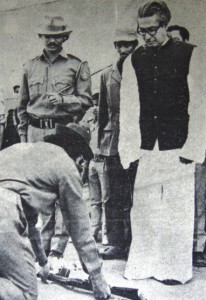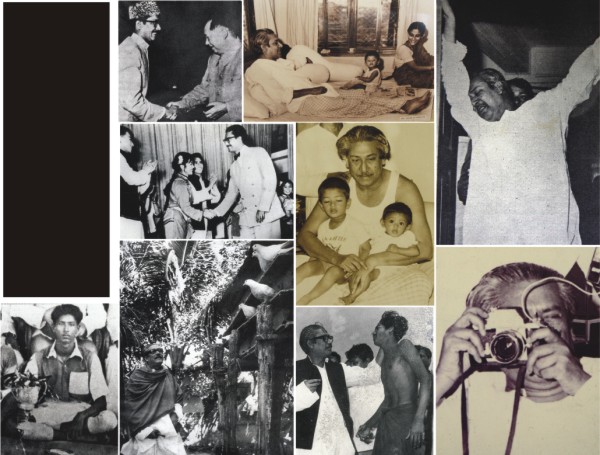|
Tribute
Friend of the Masses
ZAHEDUL I KHAN
He is not a merely an individual who accomplished amazing feats, he is an institution, a movement, a revolution, the architect of a nation, a legend and icon. He was the leader who showed his followers the way to live with honour and dignity. He was Bangabandhu, the friend of Bengal, a friend particularly to ordinary folk.

With a physique that was as immense as his vision, a voice redolent with thunder and a personality that worked magic on people, his charm and indomitable spirit, his infectious smile and abundant self-confidence earned him the name of the 'poet of politics'.
 Bangabandhu was born in March 17, 1920, in Tungipara village, Gopalganj Faridpur where he spent his childhood. At the age of seven he started his schooling at Gimadanga Primary School. At nine he was admitted to class three at Gopalganj Public School. Later he was transferred to a local Missionary School. In 1938 at the age of eighteen he married Begum Fazilatunnesa. They later became the happy parents of two daughters, Sheikh Hasina and Sheikh Rehana, and three sons, Sheikh Kamal, Sheikh Jamal and Sheikh Russel. All the sons were killed along with their parents on August 15, 1975. Bangabandhu was born in March 17, 1920, in Tungipara village, Gopalganj Faridpur where he spent his childhood. At the age of seven he started his schooling at Gimadanga Primary School. At nine he was admitted to class three at Gopalganj Public School. Later he was transferred to a local Missionary School. In 1938 at the age of eighteen he married Begum Fazilatunnesa. They later became the happy parents of two daughters, Sheikh Hasina and Sheikh Rehana, and three sons, Sheikh Kamal, Sheikh Jamal and Sheikh Russel. All the sons were killed along with their parents on August 15, 1975.
Bangabandhu started politics in 1939 from Gopalganj Missionary School. He led a group of students to demand the cracked roof of the school be repaired when AK Fazlul Huq, Chief Minister of undivided Bengal, came to visit the school with Huseyen Shaheed Suhrawardy. In 1940 he joined Nikhil Bharat Muslim Chatra Federation, and was elected Councilor for a term. In 1942 he took admission at Calcutta Islamia College, where he lodged at Bekar Hostel. In 1944 he was elected secretary of Faridpur district association, a Calcutta based organisation of the residents of Faridpur. Later in 1946 Sheikh Mujib was elected General Secretary of Islamia College Student Union.
In 1947 he completed his Bachelors degree under Calcutta University. In 1948 he took admission in Law at Dhaka University. He founded the Muslim student league on January 4 1948. It was the same year that he was put behind bars several times, especially for protesting against the government's ruling of establishing only Urdu as the state language of Pakistan.
His dream of a Sonar Bangla entailed a nation that would be based on democratic values, a secular outlook and a socialist sensibility. Perhaps they were unrealistic dreams; perhaps he would have found a compromise that would work over time. We will never really know how big a statesman he could have been, blinded as we were by the darkest chapter in history on August 15, 1975. Less than four years of his fledgling state that he was struggling to build, the legend and revered leader was brutally cut off from life and his people, along with most of his loved ones.

Copyright
(R) thedailystar.net 2010
|

